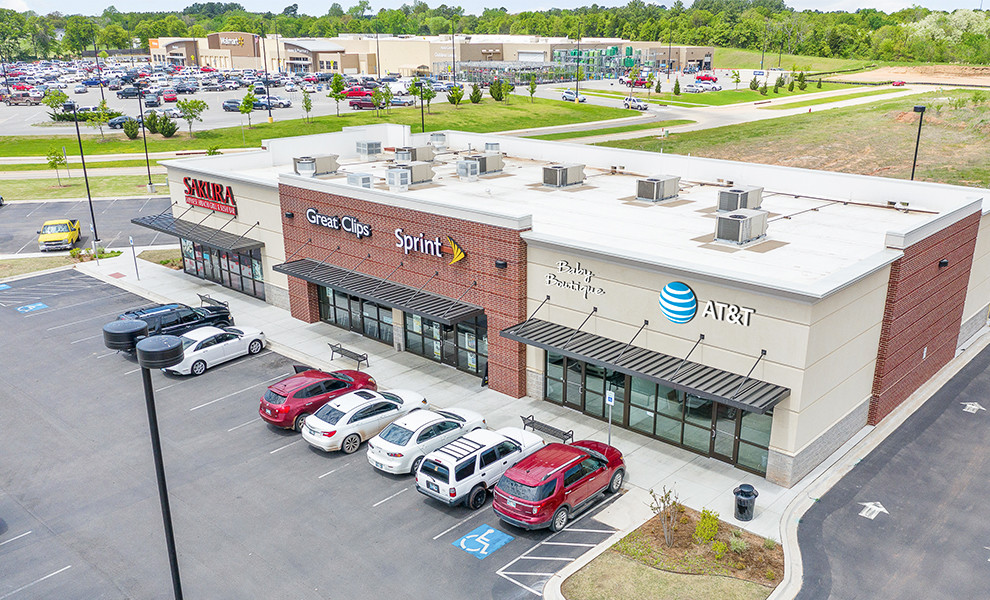
While many commercial real estate owners are large corporations or REITs. The largest number of real estate owners are individuals or small businesses that own the property that their business occupies or own one or more income generating properties.
A recent article in Officespace.com povides items to consider when seeking a commercial loan.
Commercial mortgage loans are debt secured by the underlying real estate asset. Smaller loans usually require a borrower guarantee and larger loans are often based on a non-recourse basis, that is only secured by the real estate and its income stream.
The primary purpose of a commercial mortgage is to help small business owners add “property owner” to their titles. This accomplishment is worthwhile, as it negates the need for you to pay rent to someone else. As a wise person once said, “Paying rent is like throwing your dollars into a bottomless void.”
When you own a property, your payments build in a way that gives you positive options in the future. You’ll have more control of the property, build your retirement portfolio, and create the opportunity to collect rent from others.
A commercial mortgage can be used for many kinds of property, including warehouses, offices, apartment complexes, stores, and restaurants. And the scope extends beyond just purchasing a property. You can also use this type of financing for new construction, renovating an outdated structure, removing yourself from a lease, or refinancing for a better repayment term.
Regardless of the details, these projects typically require financing that can help you convert your equity into cash.
“Commercial real estate isn’t cheap,” say the entrepreneurial experts from Small Biz Rising. “If you’re a small business owner who’s considering buying or further developing commercial real estate—whether that’s an office building, a shopping center, a hotel, or another business-related property—odds are you’ll need to secure financing from an outside lender. In most scenarios, that usually means applying for a commercial mortgage loan.”
In the financing world, there’s a spectrum of difficulty when it comes to qualifying for and obtaining various loan products. The good news is that commercial mortgages fall on the easier side of things. While SBA loans require piles of paperwork and have strict requirements, a commercial mortgage is a much smoother ride.
One of the main reasons for this ease is that you will secure the loan by using the property as collateral. As long as the property’s value appraises for a sufficient amount, you’ll bypass some of the hurdles associated with typical loans.
However, a commercial mortgage isn’t always a sure thing. Small business loans are always competitive, with lenders looking at a variety of factors before making approval decisions. What’s important is that you provide all the relevant documents, including property blueprints, purchase contracts, scope of work analysis, project budget, and a property market analysis.
Beyond the nuts and bolts of the real estate project, your finances will play a role in the approval decision. So don’t put too much emphasis on the property and lose track of the business side of the equation.
“You’ll need to gather an assortment of documents, including current business and personal tax returns, business-related financial records, personal and business credit score information, bank statements for personal and business accounts, asset and liability statements, profiles of business partners and directors, business plans, and possibly more, depending on the lender,” says Small Biz Rising.
While we’re on the topic of what you need for a commercial mortgage, here are 10 more considerations. Some are major details and others are fairly minor, but they combine to make your application more desirable to a lender.
These loans are big.
Real estate isn’t cheap, so your commercial mortgage will pack a punch. At their smallest, you’ll find amounts around $250,000. But the maximum can go up to $5,000,000 to fund larger projects.
Interest rates are favorable.
With your property serving as collateral to secure the loan, lenders will often feel comfortable offering you interest rates as low as 4.25%.

Repayment terms are also favorable.
Real estate projects are rarely quick. Luckily, neither are the repayment terms. Don’t be surprised to find terms extending up to 25 years.
Your plan can really open doors.
Business plans are always important when seeking financing, but they take on a whole new level of importance with commercial mortgages. Take the time to make sure yours clearly demonstrates your expertise and investment in the project.
You can read entire article here in Officespace.com, or contact Liberty to discuss your commercial financing project